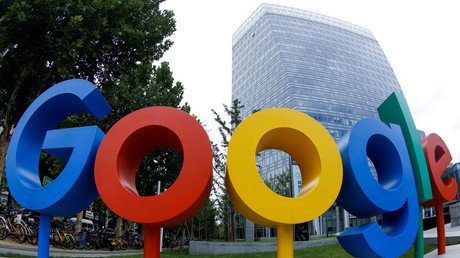Australia wants more oversight over Facebook & Google’s powers amid ‘transparency’ issues
Regulators in Australia are proposing 11 measures to fight Facebook and Google’s market-stranglehold, transparency issues and controversial social impact.
As criticism mounts against the massive digital platforms over privacy concerns, political bias and snooping on rivals, Canberra is preparing to strike back. The Australian Competition and Consumer Commission (ACCC) is pushing ahead with 11 wide-ranging recommendations aimed at regulating massive tech companies.
That includes the creation of a watchdog tasked with monitoring large digital platforms. The draft report delivered to the government also noted 8 areas it is looking into “for further analysis and assessment."
The 378-page document was released Monday following months of public hearings, discussions with the companies and input from experts.
The proposed monitoring group would be tasked with overseeing how the major digital platforms rank and display news and advertisements, given concerns that the businesses are operating with a lack of transparency.
“The ACCC considers that the strong market position of digital platforms like Google and Facebook justifies a greater level of regulatory oversight,” said Rod Simms, the chairman of the ACCC.
The operation of these platforms’ key algorithms determining the order in which content appears is not at all clear.
The report also raised concerns about the cryptic methods used by both companies to rank and display advertising and content, a process which “lacks transparency to advertisers and news organizations.” The lack of transparency is especially troubling because Google and Facebook have the “ability and incentive” to give preferential treatment to businesses which they may have a pre-existing commercial relationship.
The report suggests that Google and Facebook have become the “dominant gateways between news media businesses and audiences,” and as a result threaten to “reduce the brand value and recognition of media businesses.” The platforms’ ability to repackage and curate content also endangers the “viability of … print media and their ability to monetize journalism.”
“The downturn in advertising revenue has led to a cut in the number of journalists over the past decade. This has implications across society because of the important role the media plays in exposing corruption and holding governments, companies, powerful individuals and institutions to account,” ACCC chairman Rod Simms said.
The agency also pointed to the worrying amount of private information that the companies collect on Australian citizens, which “goes beyond the data which users actively provide” when using the platforms.
Cited research which shows that consumers are concerned about how much of their personal information is collected by digital platforms, the ACCC underscored that the “complexity and ambiguity” of online privacy policies make safeguarding private data particularly difficult.
Like this story? Share it with a friend!

















